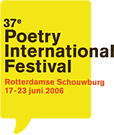Poet
|
Boris Maruna 1940-... country: Croatia language: Croatian |
has spent the greater part of his life abroad. His poetry is straightforward and non-sentimental, shocking the reader into awareness with harsh images. His razor-sharp observations are often raucously humorous. I poslije nas ostaje ljubav (1964); Govorim na sav glas (1972); Ograničenje (1986); Ovako (1992); Bilo je lakše voljeti te iz daljine (1996); Upute za pakleni stroj (1998). Boris Maruna was born on 10 April 1940 in Jasenice. In November 1960 he left Croatia (then a federal republic of Yugoslavia). After a brief stay in Italy he left for Argentina. Early in 1965 he moved to London and eighteen months later to the United States. He studied English and American literature at Los Angeles. In 1971 he went to Spain where he graduated in Spanish and Latin American Studies at Barcelona University. He then went to live in Rome for two years before returning to Los Angeles. There he trained to become a computer programmer and worked as an independent marketing adviser. Throughout his self-imposed exile he remained involved in the political and cultural life of the Croatian ‘diaspora’. He contributed to the Hrvatska revija (Croatian Review) and the London-based Nova Hrvatska (New Croatia). Maruna returned to Croatia in the summer of 1990. Several of Maruna’s poetry collections have been published only abroad. The first of his collections to appear in Croatia was Ovako (So, 1992), followed in 1996 by Bilo je lakše voljeti te iz daljine (It was easier to love you from afar). This was followed by a prose collection, The Abductors of the Fulfilled Dream (1995), and a book of poems entitled Instructions for an Infernal Machine (1998). The contrast between home and abroad in Maruna’s work is a remarkable one. In America, in spite of everything, he felt like a fish in water. After his return to Croatia a note of scepsis creeps in. The tone may be at once detached and humourous, as in ‘One More Proof of Proper Employment’. Maruna’s ambivalent attitude towards Croatia speaks from his poem ‘It Was Easier to Love You from Afar’ (also the title poem of the collection mentioned above) in which the ‘you’ could refer to a former love, but just as well to Maruna’s formerly distant, but in a sense new homeland. Maruna expresses a certain wonder, indeed revulsion, vis à vis his countrymen in ‘Lenny Bruce and the Sexual Revolution’ and ‘The Croatians Get on My Wick’. In the first poem it is the eager imitation by Croatian youngsters of all things Western, which provokes his criticism. In the second poem it is the attitude of many Croatians towards anything not to their liking. Surely, as a poet one has the right, indeed the duty, to speak out. That straightforward quality in Maruna’s work is often seen as part of a no-nonsense attitude acquired during his years in the United States. Some of his poems ,‘In the Chiaroscuro Light of Eternity’ for example, contain powerful visual images, or display a strong affinity with the visual arts. Reading his poem ‘Dog,’ one clearly visualizes the landscape and the doomed animal with all its emotions projected by the writer/observer. Author: Roel Schuyt Translated by Ko Kooman Poets: |


